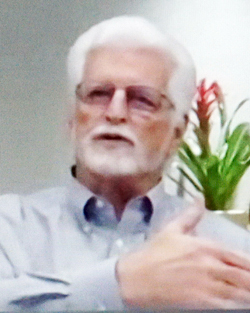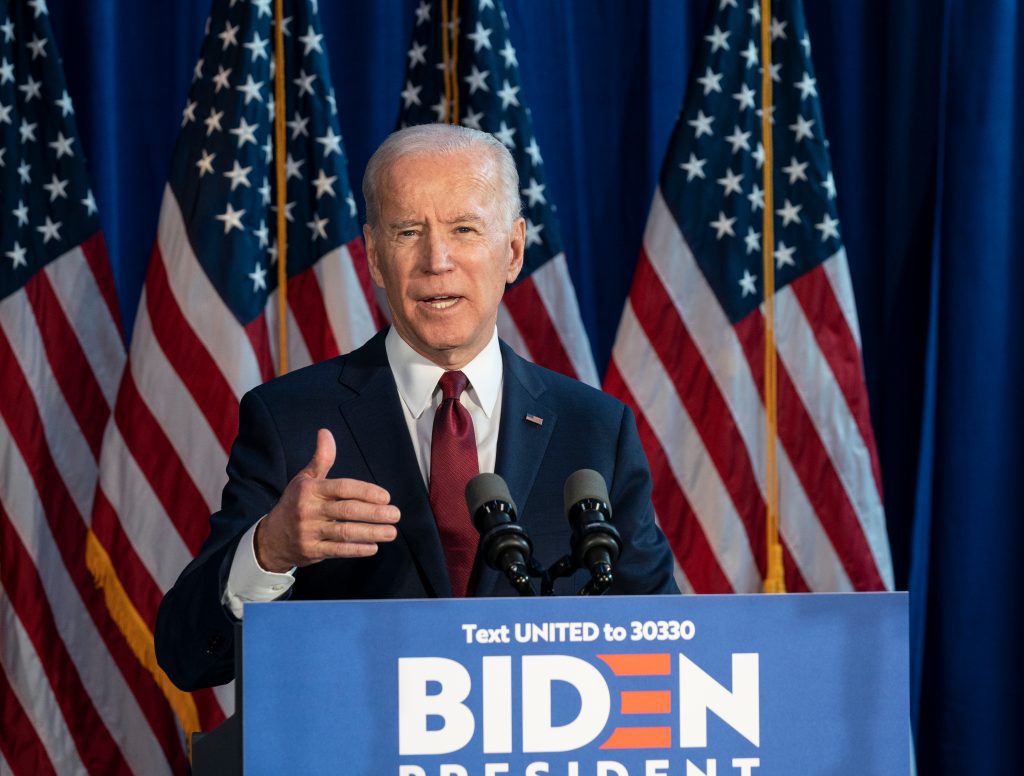Mentorship, political engagement, trade and reasons to be optimistic about the Joe Biden administration were among the topics of a virtual meeting recently organized by the United Brotherhood of Carpenters (UBC) in Canada and the U.S.
On the subject of trade between the two countries, Doug McCarron, general president at the UBC’s international office in Las Vegas, said Canadian membership needs to press for fair trade on products such as softwood lumber, aluminum and steel.
“At least under the Biden administration, we shouldn’t see any more of the ridiculous tariffs that were placed on Canadian goods by Trump,” he stated.

He believes the economic benefits of worker mobility across state, provincial and national lines will be important under the new administration, which has proposed a $3 trillion infrastructure bill. Canadian workers will be needed south of the border to meet the construction demands.
The UBC will continue to lobby the U.S. government to rethink its plan to cancel the Keystone pipeline project “because of the jobs that it will bring,” he told the webinar, which took on a Q&A format.
McCarron told the webinar audience through discussions with the Biden administration, the Made in America policy is not for Canadians to fear.
He said it appears to be largely aimed at eliminating product purchases with low-wage countries.
“We are committed with our Canadian brothers and sisters that the goal here should be to bring jobs back to North America.”

The webinar’s host, Mark Lewis, general counsel with the Carpenters’ District Council of Ontario, said a concerning issue voiced by many segments of the Canadian membership is mentorship. Some regional training centres have organized mentorship initiatives, but others are behind.
McCarron stressed the importance of apprentices being taken under the wing of journeypersons.
“We often lose people after their first job because they don’t have the skills or the know-how to get the second job,” he said.
One of the UBC’s long-term goals is to represent 70 per cent the industry’s market share across Canada and the U.S. That number has been surpassed in some areas, the Greater Toronto Area, for example, but the union has a long way to go in other regions.
While continued education and training is integral to that market share, McCarron said he thinks the UBC “is still a long way off” from reopening its International Training Center (ITC) in Las Vegas because of COVID-19 risks.
“Our training centre faces more challenges than a traditional university. Having participants fly in for a few days (of training) makes it more complicated.”
The pandemic has delayed a milestone the ITC is closing in on: having trained more than 50,000 journeypersons under its roof.
In the meantime, online courses have taken off, including one on COVID-19 preparedness. More than 50,000 construction workers have taken the course that is also available to contractors.
McCarron said a course on how government works and its impact on the Canadian members is expected to be in place by the end of the next quarter.
“I believe if more of our members understand how the system works and how it impacts them, they will be more engaged.”
Other virtual classes being developed by the union’s education and training department are on diversity, equity and mental health/suicide prevention — the latter subject gaining more prominence during the pandemic.
McCarron urged members with mental health issues to reach out for help but he also told the webinar that members need to check up on each other.
“If you know someone who looks like they are struggling, the experts say you should ask them how they are doing,” he added. “A simple thing like that can make a difference in someone’s life.”
The Carpenters’ Canadian district vice-president Jason Rowe called the virtual Q&A meeting part of the union’s commitment to increase its communications outreach and political activism.











Recent Comments